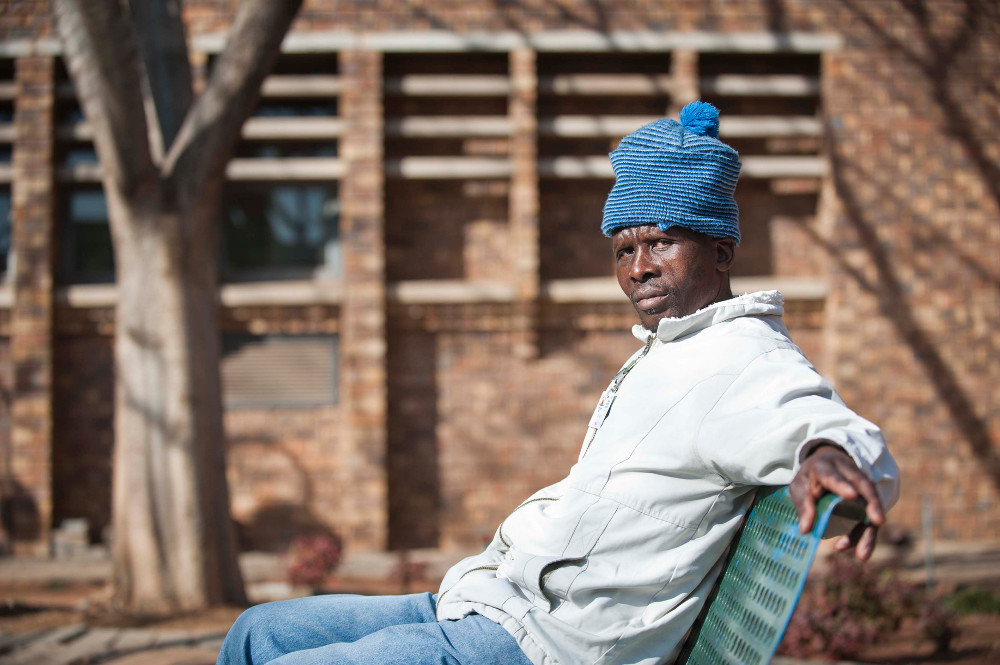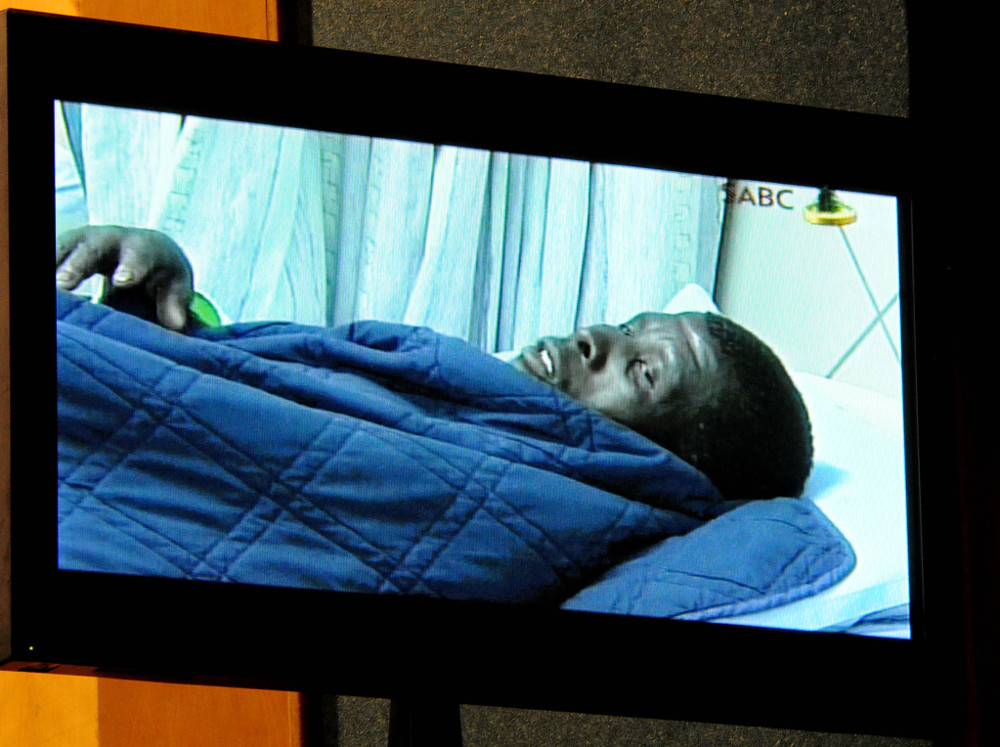Mzoxolo Magidiwana gives evidence at the Marikana commission. He is one of the men who led the striking miners and says he has little trust in the process.
Mzoxolo Magidiwana plays with his crutch absent-mindedly while he talks. It’s not the fact that he can’t walk well that bothers him. “There’s another pain,” he says. “I don’t know who’ll take care of me when I’m old.”
One of the eight bullets that hit Magidiwana on August 16 2012 at Marikana shot off his right testicle. “The doctor can’t tell if I’ll father children,” he tells the Mail & Guardian through a translator. The other bullets hit him in his right leg, his arm, waist and abdomen.
“Even my stomach, it’s no longer in position, it’s moved to the left,” he says, touching his midriff gently. “It’s painful when I eat. I can only eat soft food. I go to many doctors, but they don’t see anything wrong.”
Magidiwana (26) was at the front of the group of miners that was mowed down by the police in 2012. He believes God was protecting him that day, because most of the miners who died were behind him. “Maybe God saved me so I can speak, to tell how these things happened. People can’t believe I’m the one who’s here. I was a dead person.”
Magidiwana avoids specific questions about that day, but says that thinking about what happened always gives him a headache.
Bullets flying
Another miner, Siphete Patsha, was also shot on the same day. “I [was] further back from the people who fell first,” he says. “When I went closer I was shot from a helicopter.” Patsha’s big toe on his left foot was shot off and the skin is dark and disfigured in the place where his toe used to be. Now, when it’s cold or overcast, it becomes sore and itchy.
Patsha clutches his hands together in his lap as he recalls the moments during the shooting. “I thought I could die anytime. They didn’t stop shooting; the bullets were flying. I ran to koppie three. We were being sprayed by water and being shot at. I was scared.”

Siphete Patsha worries about how his family will survive, as neither the commission nor Lonmin provides him with money while he testifies. (Madelene Cronjé, M&G)
Both mineworkers have been attending the commission since it started in October 2012, but don’t attribute high value to the process.
“The commission itself looks like government’s way of hiding everything,” Magidiwana says. “[Commission chairperson Ian] Farlam might also already have been bribed. When our lawyer [Advocate Dali Mpofu] is cross-examining, the judge will stop him from asking questions.” Patsha nods, his face serious as Magidiwana talks. Both think the commission is a waste of time.
The miners want the matter to be taken up by international courts. “The powerful countries that are rich can prosecute them,” says Magidiwana. “Then they can’t look at your political status and they’re rich, so you can’t bribe those countries. All the politicians from [national police commissioner Riah] Phiyega upwards must be charged in the international courts.”
Family worries
Simphiwe Booi, a miner wearing a green Association of Mineworkers and Construction Union shirt, interjects and wants to know why still no police officers have been arrested two years after the massacre in which 34 miners were shot. He adds that he worries about his family while he’s at the commission. “I don’t know what the children at home are surviving on. We get no money from the commission or Lonmin,” Booi says.
Patsha says that he and the other miners who are registered to attend the commission still receive a wage from Lonmin, but he wants Lonmin to pay more for his injury.

Video footage of Siphethe Patsha in hospital is shown in the hearings. (Jan Right, Gallo)
Magidiwana agrees. “Lonmin takes me as a crazy person,” he says, and his friendly face becomes angry. “They are aware that I got injured, but I’m staying in a shack. Many of us are injured who work for Lonmin, but they don’t care.”
Magidiwana believes he would heal quicker if he had proper sanitation and gym equipment to exercise with. When he walks it is slowly, his legs apart and stiff. Before he was shot he used to enjoy playing soccer and was known in his community in Elliotdale in the Eastern Cape for being a friendly, people’s person, he says.
Pain of loss
Physical injuries are not all these miners suffered. Magidiwana’s best friend Anele Mdizeni died in the shooting in which he was injured. He’s too distraught to speak after a presentation is shown of Mdizeni at the commission.
“When they mentioned him today [Wednesday] I found myself crying,” Magidiwana says sombrely. “We grew up together. We knew each other inside out. I knew his wife. He was a good guy, not violent.”
But Patsha says it doesn’t matter whether you didn’t know those who were killed; it still hurts. “It’s painful what’s being said in the commission, because if you work with someone, it doesn’t matter if you don’t know him, it’s your brother. You suffer together at work.”
These are some of the ghosts that will continue to haunt the miners. Magidiwana still gets scared when he sees a firearm. “They kill people. It’s so hard to swallow. I wouldn’t wish it on anyone,” says Magidiwana. “That’s why the truth must be told, so that those who can’t talk, maybe their souls will rest in peace.”